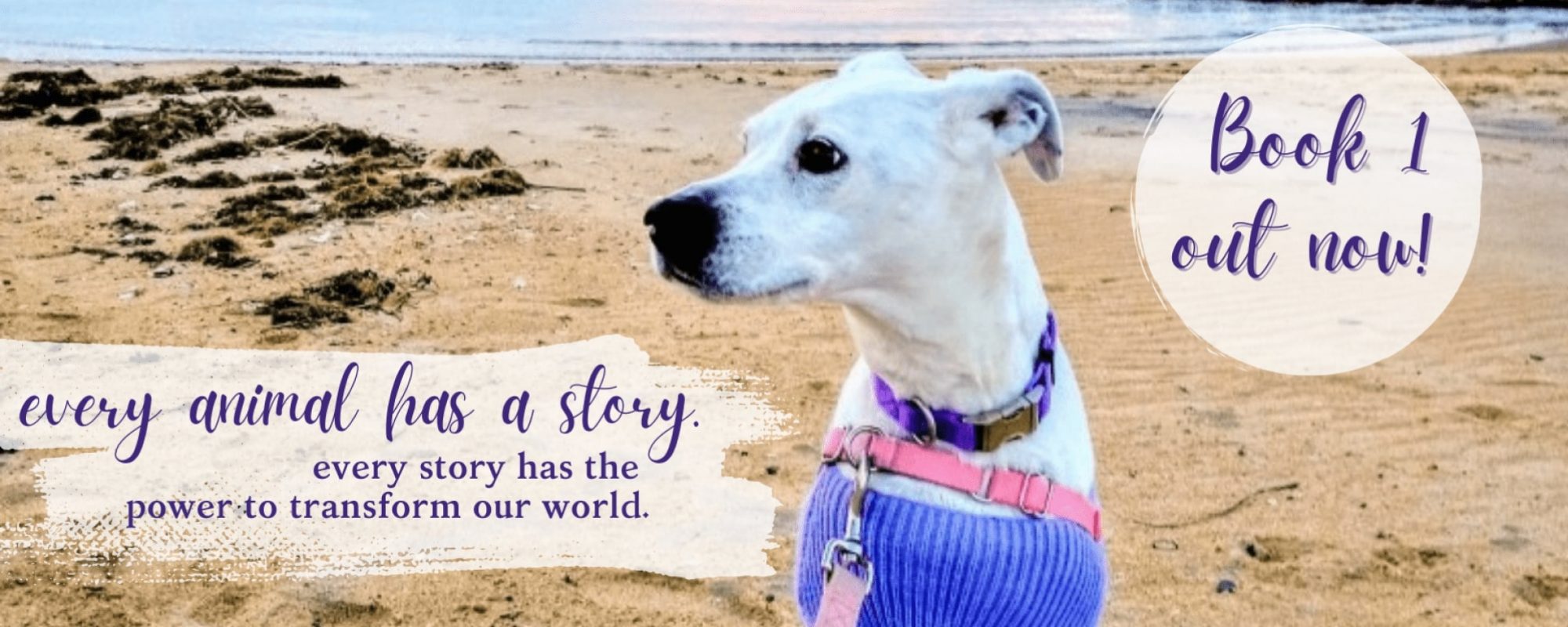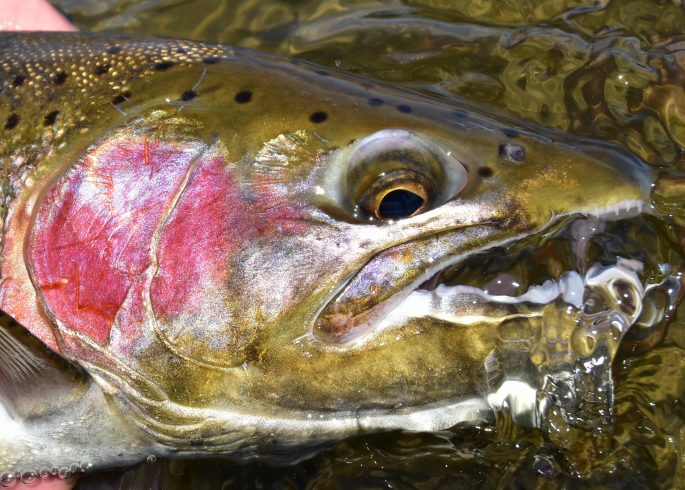The below story by guest author John Zimmerman is the second place story from our first anthology, The Dog Who Wooed at the World. For more powerful stories like this, get your copy!
I didn’t want it to die. Him to die?
I had never felt that way about the hundreds of other fish I had caught throughout my life.
Not the first time, when I was a lad at Fish-A-While Lake snuffing out the life of a sunfish at the end of a bamboo pole.
Not when my friends and I would nail freshly caught catfish to a nearby tree, thrust a knife into their heads, strip off their flesh with a pair of pliers, and then gut them and cook them over the campfire. I never for a second considered the immense pain the fishes must have felt—pain that we inflicted upon them.
Not when I brought home a stringer of Lake Michigan perch for a fish fry. Not when I caught my limit of coho from the same lake, to be eaten the next day after my mom soaked their fileted orange-red flesh in milk overnight to dampen the salmon’s strong flavor.
Nor did I care about the three other rainbow trout I caught just weeks before at the very same lake. But fearing for the suffering of the rainbow trout in front of me now, I found myself screaming, “Die already!”
He had fought so hard to free himself from the stringer I had run through his powerful jaws after I had caught him, even as I fished on. I kept looking at him as he turned his body over and over, displaying his beautiful colors. Black spots dotted his silver flesh. A radiant pink stripe ran from tail to gill, twinkling in the late sunlight. I saw a flash of green and yellow.
Finally, he slapped his tail furiously on the water, one last time, and died. I poked the trout with the tip of my fishing rod, to be sure. He went belly-up, leaving no doubt. I knelt on the shoreline and freed the fish from the stringer. I held the muscular, ice-cold trout in my hands and again admired his colors. This trout was painted at God’s easel. Then I dropped the fish in the water in horror and asked him to swim away.
He didn’t.
I ordered him to swim!
He didn’t.
“SWIMMMMMMMMMMMMMMMMMMMMMMM!” I screamed, frightening a nearby mallard into flight.
He didn’t. The chop in the water forced the dead trout back up on the bank. I petted him like a dog.
Then I cried.
I was stunned at my response. I had never felt like a killer. Until then.
Why? I think it was not only because of the way the fish died, but how he came to die.
He was one of 2,000 rainbow trout stocked in a suburban pond and ready for the catch. The shoulder-to-shoulder trout didn’t stand a chance. A great deal of the trout chucked into the lake are caught within hours after the 5 a.m. start time. Mind you, they didn’t succumb to any Ernest Hemingways quietly flipping dry flies at the trout lurking in the deep pools of cool mountain streams winding through piney woods. No, the opening of trout fishing day at the stocked lake off the freeway finds suburbanites standing in the weeds making a fuss with worms and lures in hopes of catching trout. And most do. The trout would survive the trauma of being hauled from their hatchery hundreds of miles away, only to fall victim to a piece of bait bought at the Walmart off the busy boulevard.
My fish, the one I killed, made it past those opening days. He was a survivor. He had beat the odds and lived. He avoided attaching himself to those hundreds of baited hooks and lures. He somehow lived on in water that was far too warm and turbid for a trout to maintain life.
He was a strong fish.
And a courageous one.
When we first met, he thought twice about taking my bait. The bobber moved a bit, then stopped. My heart started to race. My eyes locked on that round red and white plastic ball holding up my bait. The bobber moved again, this time a few feet. Then it went under, just a little. Then, a little more. Finally, the bobber was yanked out of sight. I pulled my rod back, hard. I felt resistance.
I got him!
He fought hard for his life. He zigged. He zagged. He leapt. He went deep. He leapt again. He thrashed back and forth. But the hook was too deep. The trout finally went slack, and I began to reel him in. He went into a frenzy one more time, after being pulled into shallow water and spotting the shore. Then he quit. He was just too damn tired. I reeled the trout onto the shore, freed the hook and strung him.
I was happy, at first. He was a nice fish—bigger and prettier than the other trout I had caught. I wish I had had someone to show him off to, but I was the only one at the lake that evening that by then was rapidly dying on the horizon. No one even got to see the admirable fight between me and that rainbow.
But then it hit me. I took the life of someone so beautiful, so strong, so unique. And for what? I was thankful there was no one there to see me cry.
I didn’t know what to do with his body. I first thought of burying it. But in the end, I did what I always did with my dead fish. I brought it home to be eaten, so he did not die in vain. My wife enjoyed the rainbow trout dinner. I didn’t take a bite. I couldn’t put a fork to it after what I did. The fish made it through the opening Battle on the Rainbow Trout, only to later die at the hands of a sniper.
That trout should get a medal, posthumously, for his bravery. After all, he saved a lot of lives by his death. Lives I would have taken. Because after that day, I could never fish again.
I learned something new about life, at the end of the rainbow.
🐟 Get your copy of the anthology & support our powerful storytelling work! 🐟
John Zimmerman is a retired newspaper writer and educator who lives in Carol Stream, Illinois. John has won several awards, including an Indiana Associated Press first place in editorial writing and an Illinois Press Association second place in column writing. John was also a special education teacher. As a playwright, John’s dramas and comedies have been produced in California, Michigan, New York, and Indiana. John has also published essays and poetry. When John is not writing, he enjoys spending time with family and his golden retriever. John is also a grateful cancer survivor.
Photo: Tom Koerner/U.S. Fish and Wildlife Service


